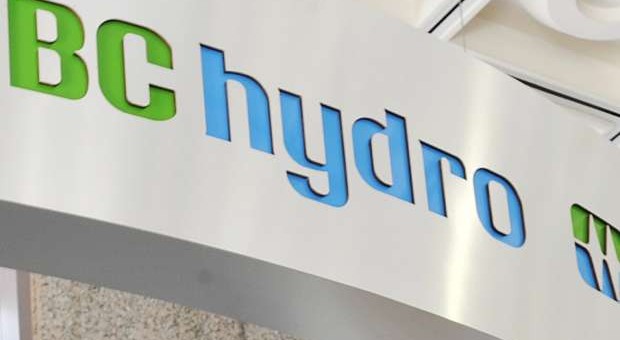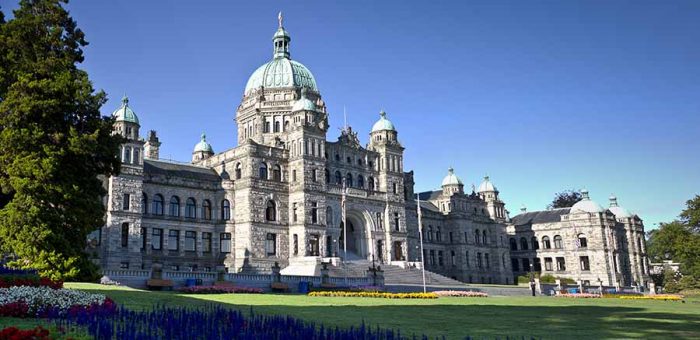Media Release
Responding to the BC government’s new regulatory framework for LNG
The BC government today outlined its proposed regulatory framework for LNG proponents such as LNG Canada. In particular, the BC government sent a letter on Monday to Mr. Andy Calitz, CEO of LNG Canada, providing specific details. While the BC Green Caucus has not seen a copy of the letter that the BC Government sent, we were consulted on the government’s high level policy objectives as outlined in their media briefing and release today.
Given that the BC Green caucus believes in the importance of giving industry certainty as to our positions and intentions, we also sent Mr. Calitz a letter that is reproduced in text form below. In our letter we are very clear that:
- The B.C. Green Caucus does not, and will not, support exempting new LNG companies from carbon tax increases as this defeats the purpose of the carbon pricing.
- Extending the carbon tax to fugitive emissions is a core component of our confidence and supply agreement with the BC NDP.
- The confidence and supply agreement requires government to implement a climate action strategy to meet B.C.’s legislated emissions reduction targets of not less than 40% below 2007 levels by 2030 and 80% below 2007 level by 2050
Our firm position is that it is incumbent upon government to assess the LNG Canada project through the lens of meeting these greenhouse gas reduction targets and specifically identify a pathway to meet them. This should be done in a manner that protects existing industries that provide jobs and economic activity that British Columbians rely on.
As it stands, and despite being in office for 8 months, the BC Government still has not identified any concrete measures to reduce greenhouse gas emissions. As I pointed out in February, it is not possible to on the one hand claim you have a plan to meet our targets and then on the other hand start promoting the expansion of LNG.
As noted in the essay I wrote, in 2016, British Columbia actually lost $383 million from exploration and development of our resource. That’s because the tax credits earned exceeded the sum of the income received from net royalties and rights tenders combined. In the fiscal year ending March 31, 2017, British Columbia earned total revenue of only $3.7 million, a 99.9% drop from 2010 (BC earned 1000 times more revenue in 2010 from natural gas than we did in the last fiscal year).
It makes no sense to continue the generational sellout and further extend the government handout to a hypothetical LNG industry by offering ratepayer-subsidized electricity (read Site C) of 5.4 ¢/kWh (less than half what you or I pay and less than half of what it will cost to produce the electricity from Site C). It makes no sense to exempt LNG companies from being required to use electric drives for compression of natural gas to achieve this discounted electricity rate.
And in addition, expectations are that the federal government would further exempt LNG Canada from tariffs on fabricated steel imports. This would ensure that most of the infrastructure would be built in Asia and shipped to BC. At the same time, the BC Government will exempt LNG proponents from the Provincial Sales Tax (PST) for construction. So much for the multi-billion dollar investment, revenue and job creator for British Columbia.
Finally, it remains to be seen if LNG demand will increase in light of the fact that Japan, the world’s largest LNG importer, is restarting nuclear reactors that were shutdown following the Fukushima incident. In fact, just this week a major Japanese electric power company is putting its LNG contracts up for sale.
In the ongoing saga of British Columbia’s desperate attempt to land a positive final investment decision from a major LNG proponent, the generational sellout continues. In a typical race-for-the-bottom fashion, the BC NDP are proposing still further subsidies to LNG proponents.
While I appreciate the Premier’s commitment to putting in place a plan to reduce emissions to 40% below 2007 levels by 2030 and 80% below 2007 levels by 2050 and to put a price on fugitive emissions, I cannot see how this is possible if the LNG Canada proposal goes ahead. It would require every aspect of our BC economy (except LNG Canada) to collectively cut emissions by more than half in twelve years and by 95% by 2050.
As outlined in our media release below, there are significant opportunities to grow B.C.’s economy while meeting our climate targets that do not include LNG. For instance, the supercluster funding announced last month is expected to generate 50,000 jobs and $15 billion in economic activity in B.C. in the next 10 years.
In summary, the BC Green Caucus will not support any legislation brought forward to grant the exemptions outlined above.
Media Release
B.C. Green Caucus releases letter to LNG Canada clarifying position on government’s LNG approach
For immediate release
March 22, 2018
VICTORIA, B.C. – The B.C. Green Caucus released a letter sent to LNG Canada clarifying the Caucus’ position on the government’s proposed LNG regulations. The letter, sent on Monday March 19, came after the Caucus was was made aware of the the details of the government’s proposed LNG regime. The letter is intended to give industry maximum clarity, as the minority government requires the B.C. Green Caucus’ votes for general stability and to pass legislation.
“There are significant opportunities to grow B.C.’s economy while meeting our climate targets,” said Andrew Weaver, leader of the B.C. Green Party. “For instance, the supercluster funding announced last month is expected to generate 50,000 jobs and $15 billion in economic activity in B.C. in the next 10 years. Future development must fit within our climate targets, and the numbers on LNG simply don’t add up.”
The B.C. Green Caucus does not support extending the proposed measures to support existing Emissions Intensive Trade Exposed (EITE) industries as currently conceived to prospective LNG companies – a policy that would in effect freeze the carbon tax at $30/tonne for certain facilities. CASA commits government to extend the carbon tax to fugitive emissions, and the Caucus expects that this will include the natural gas industry. Further, the Caucus is concerned that increasing B.C.’s emissions through LNG developments will place an undue burden on existing industries and the public to reduce their emissions beyond what is already required.
“Not only is a plan to meet our climate commitments a core component of our Confidence and Supply Agreement (CASA) which forms the stability of this government, it is essential for ensuring we do not betray our duty to future generations.” Weaver continued. “When it became clear that the government intended to propose measures that are incompatible with B.C.’s ability to meet our climate targets, we felt it was our responsibility to communicate to LNG Canada that if these measures were to go ahead unamended, we would no longer have confidence in government.
“To be clear – our Caucus is fully committed to working in partnership with the B.C. NDP government to enact a plan to meet our climate targets and in attracting the investments we need to build a 21st century economy. We will continue to hold this government to account on all its promises, including our responsibility to the next generation and our international commitments to act on climate change.”
-30-
Media contact
Jillian Oliver, Press Secretary
+1 778-650-0597 | jillian.oliver@leg.bc.ca
Text of BC Green Caucus Letter
Mr. Andy Calitz
CEO, LNG Canada
March 16, 2018
Dear Mr. Calitz,
We are writing regarding your ongoing discussions with the Government of British Columbia on your proposed project, LNG Canada in Kitimat, B.C.
As you know, British Columbia currently has a minority government, where the votes of our three caucus members provide confidence in Premier Horgan’s NDP government. The basis of our confidence is the Confidence and Supply Agreement (“CASA”) signed May 30, 2017 which binds our two caucuses to act on the principle of “good faith and no surprises.” As such, the government must consult with our caucus on all matters, and it must uphold the agreed-upon policies and initiatives enshrined in it. Our caucus has been consulted on the letter sent from the government to LNG Canada. We are writing to let you know our position on the government’s proposal in order to provide you with the fullest possible scope of information.
First, extending the carbon tax to fugitive emissions is a core component of CASA. We have assurances from the government that this extension is forthcoming pending a determination of the necessary technologies and regulations to measure them. To be clear, it is our expectation that the carbon tax on fugitive emissions will be extended to all sources of these emissions. This will have impacts on a number of industries and future proposed projects, including yours.
Second, CASA requires government to implement a climate action strategy to meet B.C.’s legislated emissions reduction targets. Therefore, all future development must fit within our province’s commitment to the Pan-Canadian Climate framework to meet our emissions reduction targets, as well as soon to be legislated targets for British Columbia specifically. As such, it is incumbent upon government to assess your project through this lens and to specifically identify how it will accomplish the emission reductions required to meet our targets of not less than 40% below 2007 levels by 2030 and 80% below 2007 level by 2050. This must be done in a way that limits harm to other existing industries that provide jobs and economic activity that British Columbians rely on.
Finally, CASA commits government to implement an increase of the carbon tax by $5 per tonne per year beginning April 1, 2018. Our intention was to ensure that across the entire economy a clear market signal was sent that incentivized low GHG producing activity, as well as spurred innovation and investment in the new economy. We were made aware over the course of our consultations with government that the proposed measures to support Emissions Intensive Trade Exposed (EITE) industries would be extended to LNG as well. These measures would have the effect of rebating up to 100% of the carbon tax that was paid beyond the $30 per tonne, based on how the greenhouse gas production intensity compares to the global cleanest benchmark.
While our caucus is supportive of these measures for the many existing industries in B.C. that already provide jobs and economic activity for our province – many of whom made their investment decisions in a previous regulatory environment – our caucus does not support extending the EITE as currently conceived to a proposed LNG industry.
If such a measure goes forward without amendment we do not see how a climate action plan, as agreed to in CASA, would have any legitimate pathway forward to reach our GHG reduction targets. As such, our caucus would no longer have confidence in government, as they would not be living up to their commitments laid out in CASA.
We believe that British Columbia must make its GHG reduction targets and climate action plan the centerpiece of its economic strategy. Our focus must be on prioritizing innovation within our economy and seeing new investments that ensure we are leaving the next generation with real opportunities to prosper. We are deeply encouraged that the companies engaged in your joint venture are investing heavily in renewable energy and other clean technologies. B.C. has a highly educated workforce, world-class research institutions and a wide range of innovative companies. We would welcome the opportunity to work with you in a manner that builds on these opportunities while helping us meet B.C.’s GHG reduction targets, as committed to under the Paris Climate Accord.
We would be happy to discuss our position in detail with you.
Sincerely,
Andrew Weaver
MLA, Oak Bay Gordon Head and Leader, B.C. Green Party
Sonia Furstenau
MLA, Cowichan Valley and Deputy Leader, B.C. Green Party
Adam Olsen,
MLA, Saanich North and the Islands
Reintroducing a bill to lower the voter age in British Columbia to 16
Today in the BC Legislature I reintroduced a bill that would lower the voter age in British Columbia to 16. This is the third time I’ve introduced this bill. I’ve provided a detailed rationale for it here, here and here, and expanded upon it further in a Vancouver Sun article that was published today.
Below I reproduce the video and text of my introduction of the bill, as well as the media statement that we released.
Video of Introduction
Text of Introduction
A. Weaver: It gives me great pleasure to introduce a bill that, if enacted, would lower the voting age to 16 in British Columbia.
The voting age in British Columbia was not always 18. Federally, it wasn’t until 1970 that the Canada Elections Act was amended to drop the voting age from 21 to 18. In British Columbia we made the jump in two steps. First, in 1952 we dropped the voting age from 21 to 19, but it wasn’t until 1992 that we made the subsequent change to lower the age to 18.
Around the world, more and more jurisdictions are openly discussing the notion of dropping the voting age to 16, and, in fact, a growing number have actually done so. Austria, Argentina, Brazil, Germany and Scotland are but a few of the jurisdictions that have extended voting rights to 16-year-olds.
There’s ample evidence to suggest that the earlier in life a voter casts their first ballot, the more likely they are to develop voting as a habit throughout their lifetime.
Sadly, in the 2017 election, only 56 percent of youth aged 18-24 and only 46 percent of young adults aged 25-34 voted here in British Columbia. Compare that to the provincial average of 61 percent and to the 75 percent of seniors aged 65-74 who voted.
It’s also a common misconception that 16-years-old are not as informed and engaged in political issues as older voters. The research, however, says otherwise.
Sixteen- and 17-year-olds are old enough to drive, pay taxes, get married and sign up for the military. They should have a say in the direction our province is heading as they ultimately inherit what we leave behind.
Mr. Speaker: The question is first reading of the bill.
Motion approved.
A. Weaver: I move that the bill be placed on the orders of the day for second reading at the next sitting of the House after today.
Bill M205, Election Amendment Act, 2018, introduced, read a first time and ordered to be placed on orders of the day for second reading at the next sitting of the House after today.
Media Release
Weaver re-introduces bill to extend voting rights to 16 and 17-year olds
For immediate release
March 13, 2018
VICTORIA, B.C. – Andrew Weaver, leader of the B.C. Green Party, introduced a Private Member’s bill to lower the voting age to 16 in B.C. This is the third time Weaver has introduced the bill.
“Young British Columbians have the greatest stake in the future of our province; they should have a say in the decisions our politicians make,” said Weaver.
“Yesterday, Elections B.C. announced that only 56.24% of 18-24 year olds and 46.35% of 25-35 year olds voted in our last provincial election. Voting rights have been extended to 16 year-olds in Scotland, Argentina, Austria and Brazil. Evidence from those jurisdictions shows that enfranchising these young voters has led to substantially higher levels of political participation.
“Moreover, research shows that the cognitive skills required to make calm, logically informed decisions are firmly in place by age 16. Young citizens of British Columbia are old enough to drive, pay taxes and sign up for the military. They are also the leaders of tomorrow. They should have a say in the direction we are heading, as they will inherit what we leave behind. B.C. should take this chance to strengthen our democracy and lower the voting age to 16.”
-30-
Media contact
Jillian Oliver, Press Secretary
+1 778-650-0597 | jillian.oliver@leg.bc.ca
Responding to BCUC hydro rate freeze rejection
In November of last year, the BC Government released a very misleading press release entitled Province delivers on commitment to freeze BC Hydro rates. The release stated:
The British Columbia government is delivering on its promise to freeze BC Hydro rates, putting an end to the years of spiralling electricity costs that have made life less affordable for B.C. homeowners and renters, Minister of Energy, Mines and Petroleum Resources Michelle Mungall announced today.
You would be forgiven if you thought that this announcement meant that BC Hydro rates were not going to go up this year. You were probably very upset if Fortis was your electricity provided. But it turned out that all the BC NDP had done was instruct BC Hydro to ask the independent British Columbia Utilities Commission (BCUC) to consider overturning its already approved 3% rate increase for 2018.
As I noted back in the fall, it was entirely uncertain whether the BCUC would agree to do this given the autonomy of the organization, the very legitimate concerns about the fiscal sustainability of BC Hydro, the ability for intervenors to provide further information and so forth. I suggested that the Minister of Energy, Mines and Petroleum Resources owed British Columbians a formal correction to the press release. She refused.
Well as expected, today the British Columbia Utilities Commission rejected BC Hydro’s request for a rate freeze.
The BC NDP responded with a hastily issued press release expressing disappointment. They further noted (with scant details) that:
“BC Hydro residential customers who find themselves in an emergency – such as loss of employment, unanticipated medical expenses or pending eviction for example – will be eligible for a grant toward their outstanding BC Hydro bill. The grant is up to $600 and does not need to be repaid.”
I reproduce our media release below.
Media Release
Weaver responds to BCUC hydro rate freeze rejection
For immediate release
March 1, 2018
VICTORIA, B.C. – Andrew Weaver, leader of the B.C. Green Party, responded to the BCUC decision to reject the government’s proposed rate freeze, as well as the government’s proposal to provide a lifeline rate program to low-income British Columbians.
“I am glad that the government is respecting BCUC’s independence,” said Weaver.
“If governments had always done this, British Columbians would not be facing the travesty of the Site C boondoggle. BCUC makes its decisions based on evidence and in what is the best interests of ratepayers. Respect for proper process is essential for public trust in government and for the integrity of our democracy.
“While it’s encouraging to see the government adopting a more evidence-based, progressive approach to support British Columbians facing income insecurity, this demonstrates the need to move past ad-hoc, boutique supports and seriously consider a basic income. As the world and our province faces challenges such as automation and the gig economy, we must proactively respond with innovative ideas. Basic income is widely lauded by economists and will help ensure that nobody falls so far behind that they can’t pick themselves back up again. When British Columbians are truly income secure, they will be able to take risks such as starting small businesses, which will help build a truly thriving, 21st century economy.”
-30-
Media contact
Jillian Oliver, Press Secretary
+1 778-650-0597 | jillian.oliver@leg.bc.ca
Initial response to BC Budget 2018
Today was Budget Day in the BC Legislature. This is the first full budget announced by the new BC NDP minority government. While we haven’t had the time to fully digest all the details we are cautiously optimistic.
We are very pleased with the investment in childcare and early childhood education. However, we remain troubled with the government’s approach to dealing with the housing crisis. It is good to see that we have a government that is finally acknowledging there is a problem in housing, but there is much more that needs to be done. While a welcome first step, the proposals we heard today are not a bold enough response to our housing crisis.
We also remain concerned that the challenges presented by the emerging economy, and the challenge of climate change in particular are not receiving adequate attention. What was lacking in the budget speech was a vision for a strong, resilient diversified economy that build’s on British Columbia’s strengths (something that I will address in my budget response tomorrow).
When I rise tomorrow to speak to the budget, I will provide a more extensive analysis. Below is the media statement we released outlining our initial reaction.
Media Release
B.C. Greens respond to budget
For immediate release
February 20, 2018
VICTORIA, B.C. – The B.C. Green caucus issued the following response to the release of the provincial budget.
“It is refreshing to see a provincial budget that puts people back at its centre, but there is still much work to be done to meet British Columbians’ expectations for the future,” said Weaver.
“We need a vision for seizing the opportunities and addressing the challenges of the 21st century. Our goal shouldn’t just be to only fix the shortcomings of the last 16 years – as leaders we need to champion a clear plan for the economy and the challenges and opportunities of the coming decades.
“It is good to see that we have a government that is finally acknowledging there is a problem in housing, but there is much more that needs to be done. While a welcome first step, the proposals we heard today are not a bold enough response to our housing crisis.
“Many of the other tools the government has put on the table are promising but what matters is whether these initiatives will be implemented in a way that set us on a path to a different future and ensures the next generation won’t be dealing with the same challenges we face right now.
“It is encouraging to see such a significant emphasis on child care. This is a core commitment to our Confidence and Supply Agreement and we have been working diligently to consult with the government on how we can best achieve our shared goals.
“However, we are still concerned that the challenges presented by the emerging economy, and the challenge of climate change in particular are not receiving adequate attention. Without a clear vision and decisive action we risk undermining all of the progress we could make on childcare and housing.
“Over the coming days and weeks our caucus will be seeking more information from the government about the specifics of their budget policies.”
Sonia Furstenau, who has been collaborating with the government on the child care plan, said the government’s articulation of Child Care B.C. was promising.
“The investments in childcare and early childhood education provide an us with an unparalleled opportunity to provide the next generation of British Columbians with the best possible conditions for success and to set B.C. on a path towards achieving far greater equality,” said Furstenau.
“I am grateful to see explicit recognition of the importance of educators and indigenous-led care.”
-30-
Media contact
Jillian Oliver
jillian.oliver@leg.bc.ca
250-882-618
Auditor General’s report demonstrates it’s time to get serious on climate action plan
It’s been a busy day in the BC Legislature. Right after Question Period, the Speaker presented the Auditor General’s report entitled Managing Climate Change Risks.
Not surprisingly, the Auditor General concludes that “government is not adequately managing the risks posed by climate change” and that “government has not taken adequate action to meet provincial emission reduction targets”.
Below are my comments on the release of this welcome report.
Media Release
Weaver: Auditor General’s report demonstrates it’s time to get serious on climate action plan
For immediate release
February 15, 2018
VICTORIA, B.C. – Andrew Weaver, leader of the B.C. Green Party, released the following statement on the Auditor General’s report, Managing Climate Change Risks: An Independent Audit.
“The Auditor General’s finding that the government is not adequately managing the risks posed by climate change is extremely serious and deserve our immediate attention,” said Weaver.
“The unfortunate trend of politicians making grand statements about the importance of climate action and then doing nothing to meet our targets must end. In 2008 we were world leaders in climate action. The previous B.C. Liberal government not only failed to build on the Climate Action Plan, but dismantled the elements of the plan that were already in place. Now, the Auditor General has found that the government has done little to address the effects of climate change that are already underway.
“The risks of inaction to our province are enormous. Climate change has unique ramifications for each of B.C.’s precious ecosystems. We need to be honest with British Columbians: do our targets mean anything? If we truly care about the impacts of climate change on the next generation, we must follow our words with decisive action.
“Through our inaction we risk following behind greater global economic trends. In this minority government, we have an opportunity to make climate leadership a foundational accomplishment that drives our vision for the future of the province. We need a diversified, sustainable 21st century economy – one that will serve today’s generation without burdening generations to come. Other jurisdictions worldwide are reaping the economic rewards of the explosive growth in renewable energy. B.C. has everything we need to be a leader cleantech – just today it was announced that B.C. will receive a portion of federal supercluster funding. It’s time to stop chasing the sunset industries of yesterday and embrace these exciting opportunities.”
-30-
Media contact
Jillian Oliver, Press Secretary
+1 778-650-0597 | jillian.oliver@leg.bc.ca







